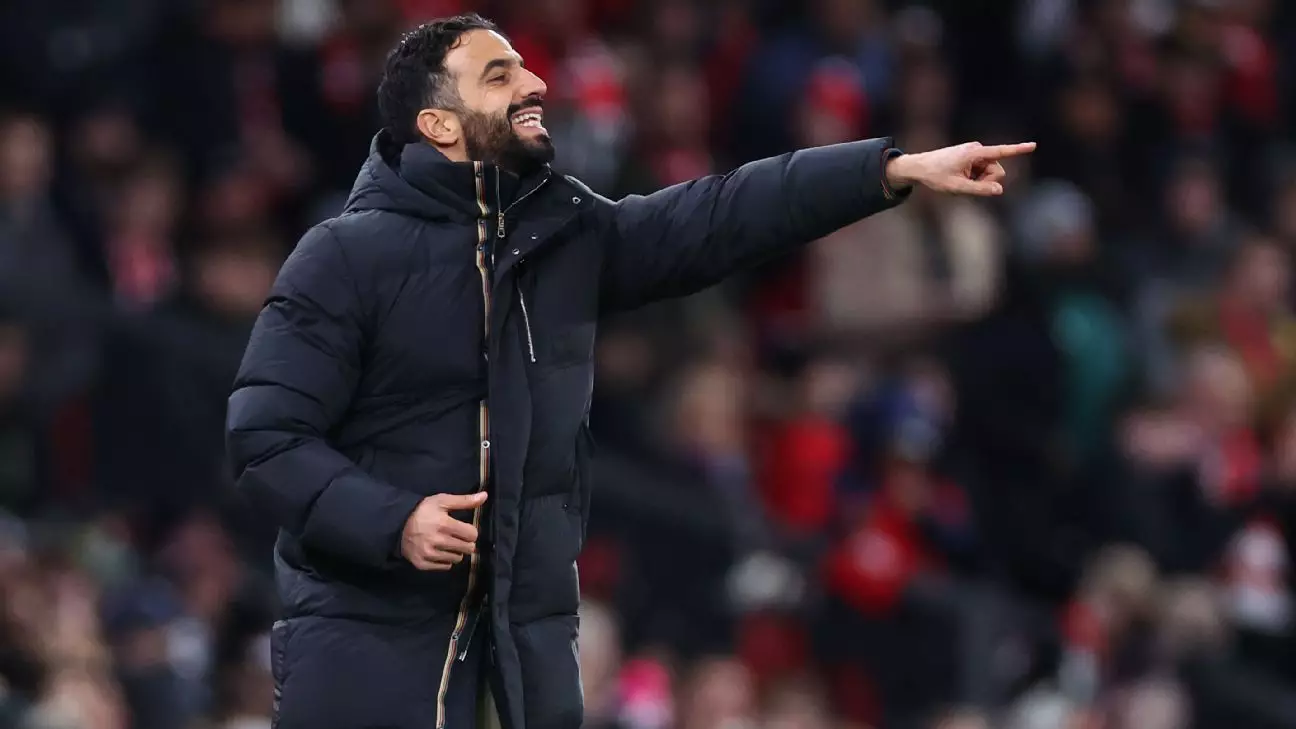The recent arrival of Ruben Amorim as the manager of Manchester United has instigated a wave of apprehension and excitement. As he navigates the intricate dynamics of a high-profile club, Amorim has openly shared his feelings of anxiety and nervousness, a sentiment echoed by many who enter the pressure-cooker environment of top-flight football. The Portuguese coach’s admission that he feels nervous while witnessing his team adapt to his tactical ideologies underscores the reality that transformation, particularly in a storied club such as Manchester United, is rarely a linear process.
First Victories and Tactical Adjustments
Amorim celebrated his inaugural victory in charge with a narrow 3-2 win against Bodo/Glimt in the Europa League. While victory is always a morale booster, the match highlighted the choppy waters in Amorim’s early tenure. For a significant portion of the game, Bodo/Glimt had the upper hand, a stark reminder that there are still numerous hurdles to overcome. In his post-match reflections, Amorim revealed the discomfort of not fully understanding his players or being able to control the unfolding events on the pitch. This raw commentary reveals a manager who is not afraid to confront the realities of his position; he knows he must cultivate a deeper connection with his squad to orchestrate the desired changes.
In the wake of his first match, Amorim opted for a tactical reshuffle, enacting six changes from the team that had drawn against Ipswich in his debut outing. By introducing Lisandro Martínez, Tyrell Malacia, and others, he aimed to inject fresh blood into the lineup. While he acknowledges improvements in ball handling and overall quality, the physical demands of constant pressing appear to have taken a toll on his players. The mention of fatigue among key players reveals underlying concerns about fitness levels and potential overreaching. Such challenges often arise when implementing a new philosophy, particularly one that emphasizes high-intensity play.
As Amorim prepares for the next game against Everton, he faces the dilemma of balancing squad rotation with the necessity of building team cohesion. His strategy of frequent changes, while perhaps justified due to fitness issues, raises the question of whether this approach hinders the establishment of a stable and effective unit. For a team like Manchester United, where expectations are paramount, the pressure to find immediate success can create an additional layer of anxiety.
Ruben Amorim stands at a critical juncture in his managerial journey at Manchester United. With the dual pressures of anxiety and the challenges of refinement in play, he must find ways to guide his players through this turbulent phase. The road ahead will undoubtedly necessitate patience, as Amorim strives to instill his tactical vision while fostering a synergetic team environment. The evolution of this Manchester United squad under his leadership will be an intriguing saga to follow, as it balances the need for immediate results with the necessity for long-term development.


Leave a Reply